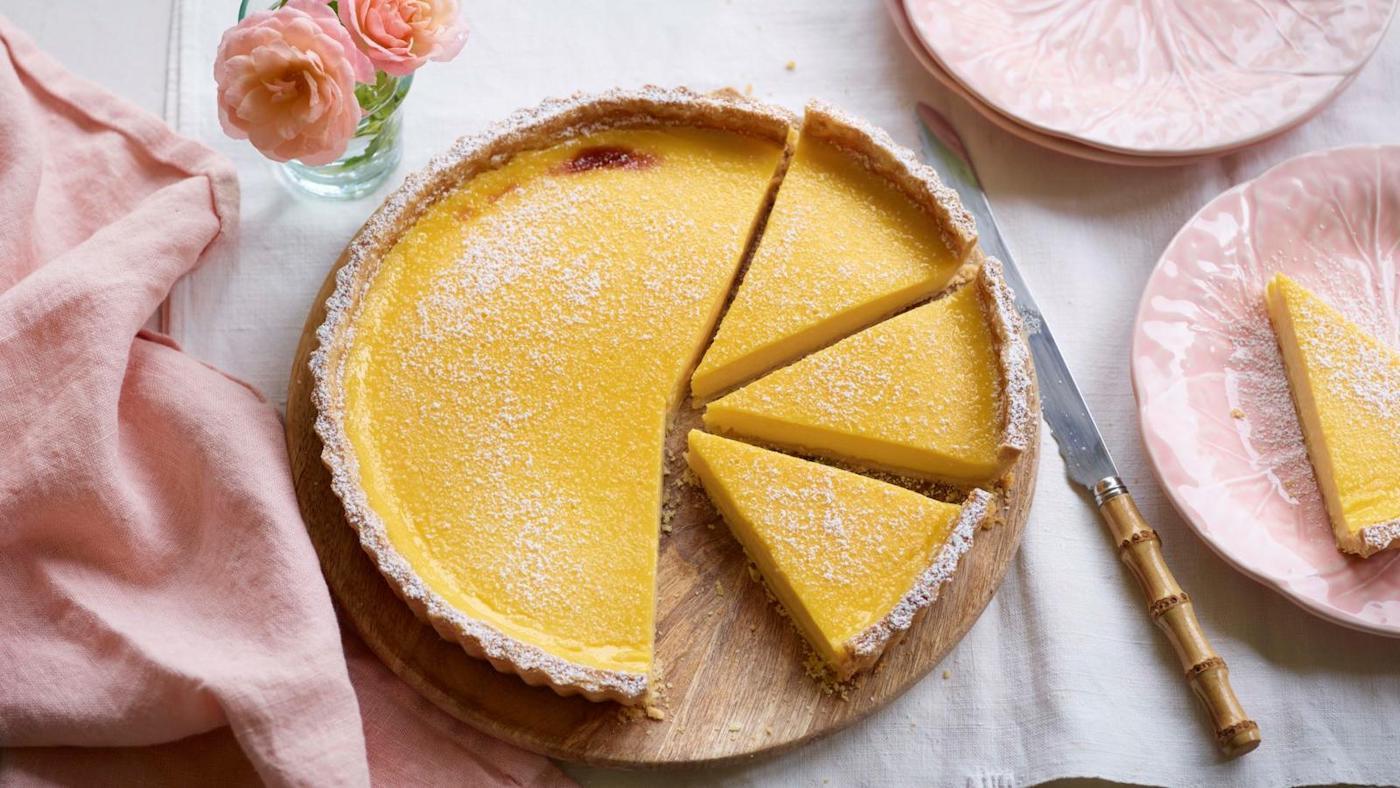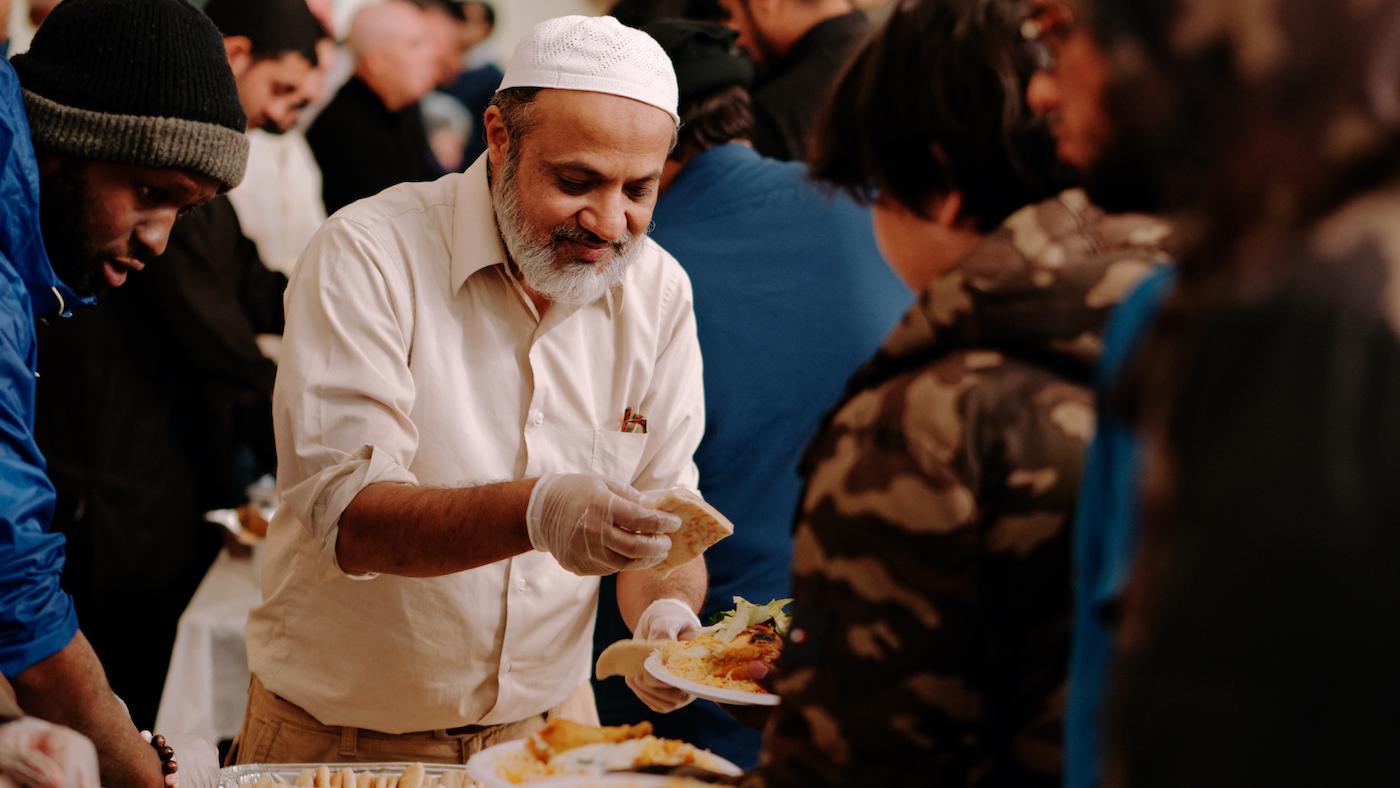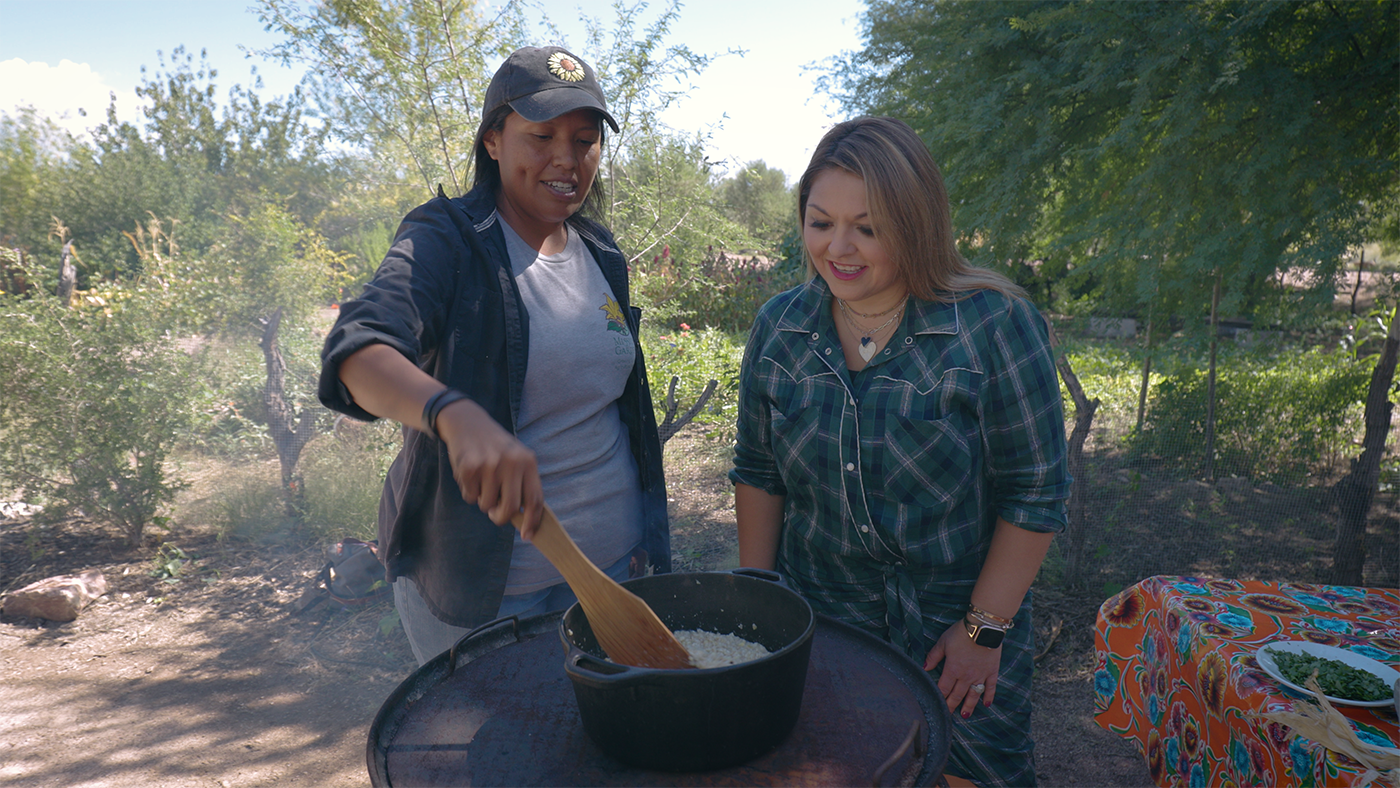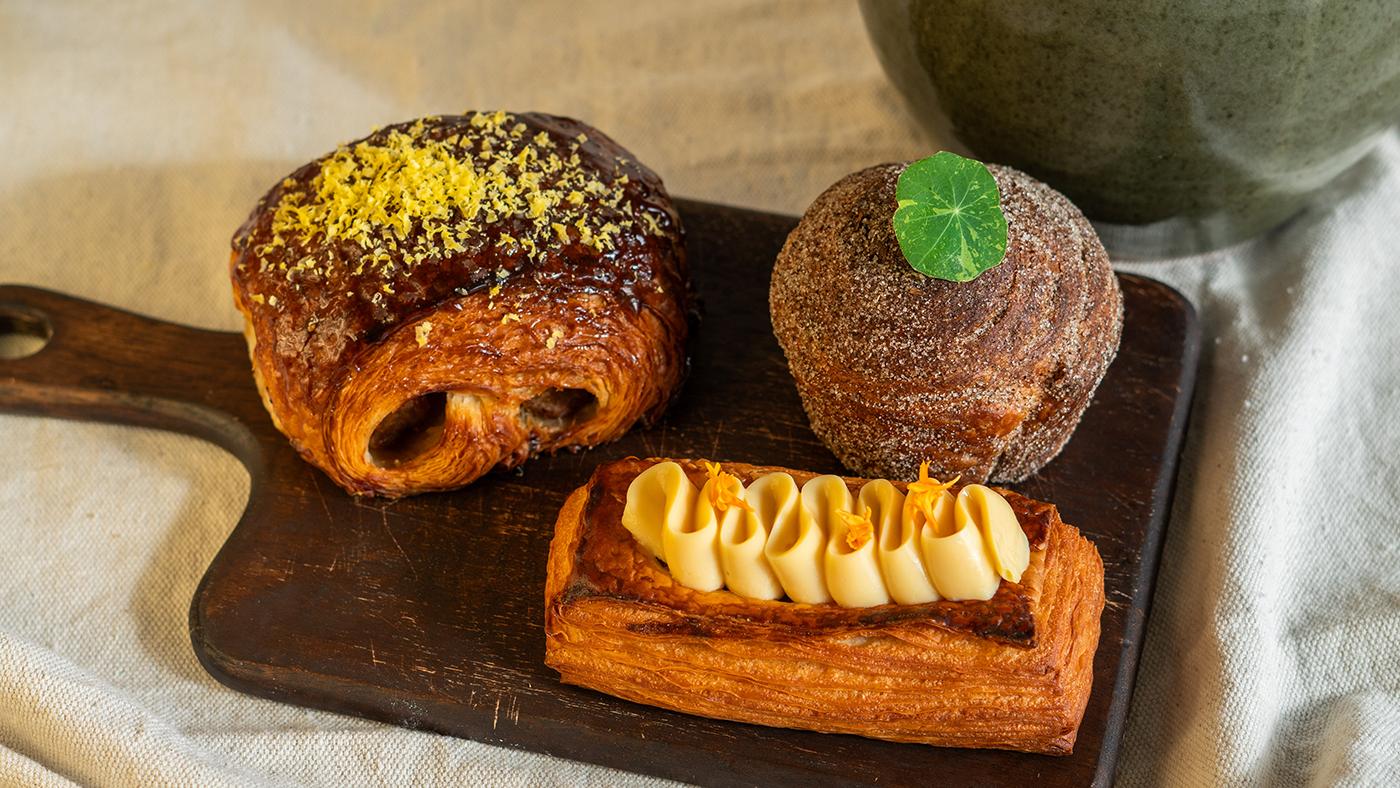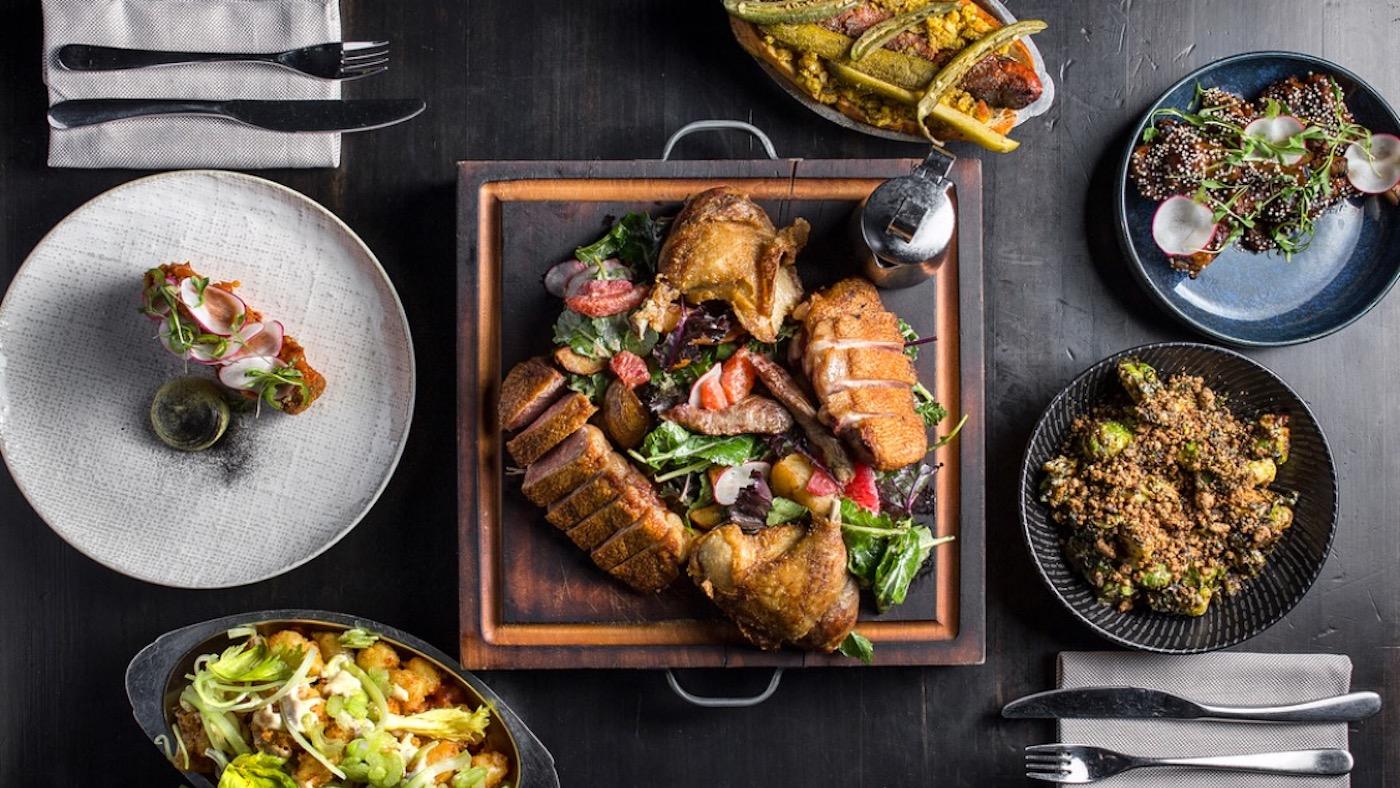The Owners of Monday Coffee Co. Want to Change the Way People Experience Mondays
Meredith Francis
February 21, 2023
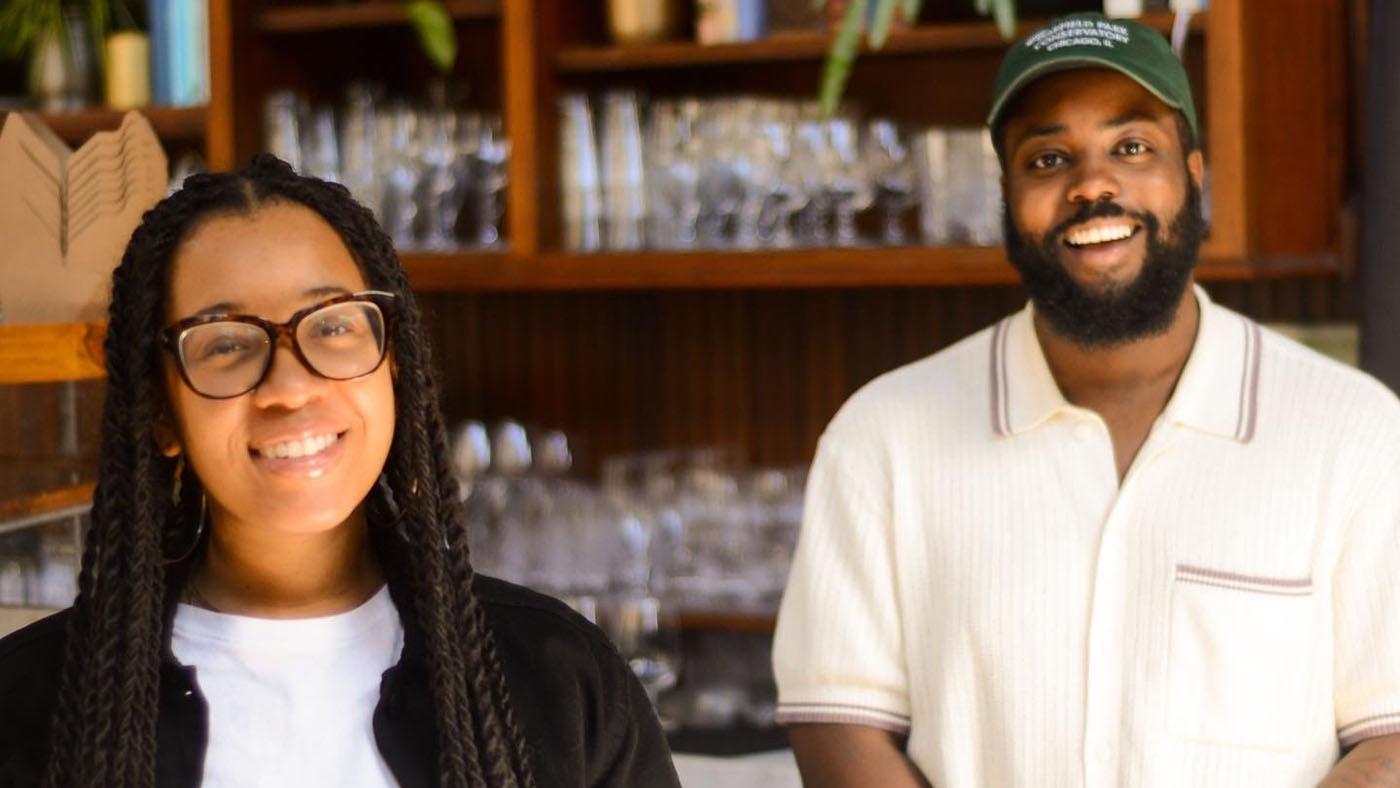
Get more recipes, food news, and stories by signing up for our Deep Dish newsletter.
Amanda Christine Harth first started drinking coffee at church when she was 12 years old. Her business partner, Felton Kizer, had a slightly different relationship to the beverage.
“I was actually very opposed to coffee. I thought it was gross,” Kizer says with a laugh. Though it grew on him over time, coffee was initially “a tool to just get through”—for surviving the work day, or for killing time on a break from his retail job.
Their respective relationships to coffee may have started out differently, but they now have a shared passion for the drink with their business, Monday Coffee Co. Their friendship started as “one of those internet friendships” on Instagram since they both were artists—Harth has a background in fashion design, and Kizer is a photographer—and had mutual friends. A conversation about starting a coffee company together started to take root.
“From there, it was just learning about how many different ways we can change how coffee tastes with different processes of getting certain notes out of that bean. So I think the science of it really drew my interest,” Harth says.
They first launched their e-commerce business on a Monday in October of 2020. By that Friday, both their online store and pop-up had sold out.
“Okay, this could really be a thing!” Harth recalls thinking. Because they began their business during the COVID-19 pandemic, they wanted their coffee to be a source of connection at a time when in-person connection with others was so limited.
“Coffee has been this daily ritual for people, but it seemed like it meant more at that time, where you're sending a loved one a bottle of cold brew or a bag of beans that say, ‘I love you, I miss you, I’m thinking of you,’” Harth says.
The name of their company reflects their love of a day that most people don’t love, and a day that requires a cup of coffee (or two) to get through.
“We love Mondays,” Harth says. “A lot of people don't. The two of us find that that's when we're our most productive, so we want people to change the way that they experience Monday.”
Their online store currently sells whole beans and cold brew. Though Harth and Kizer operate out of Chicago and host pop-ups in and around the city, their beans are roasted in Grand Rapids, Michigan.
Kizer likens roasting beans to popping popcorn. In its simplest form, “just think about a bigger popcorn machine,” Kizer says. “You’re just cooking beans.”
Kizer offers another comparison for the beans: Like sourcing fabric for making a shirt, it’s all about the quality of the source material. As a small business, Kizer says it’s important to them that the quality of their beans be top-notch. Though they like to mix it up a little bit, their menu almost always has something on it with beans sourced from Honduras.
What motivates their business is connecting with people. Kizer says they have always been interested in the experience of drinking coffee, more so than having the exact same product on the shelf every day, like Starbucks or other coffee chains.
“You can find the exact same thing [at those places], maybe forever, right?” Kizer says. “We lean into the lifestyle of coffee rather than being known for a certain type of coffee.”
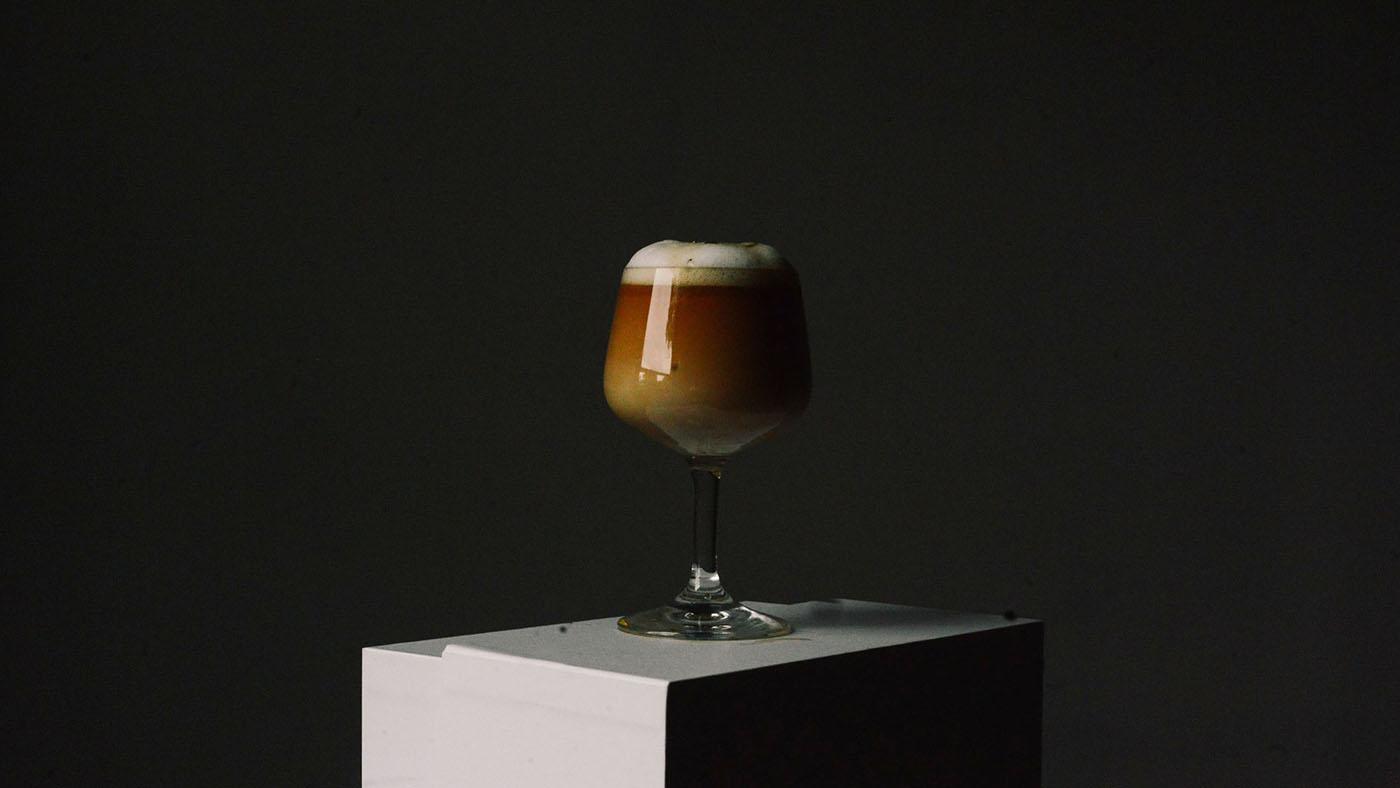 Image: Felton Kizer / Monday Coffee Co.
Image: Felton Kizer / Monday Coffee Co.
One way they do that is with their frequent pop-ups. Though they hope to have their own traditional cafe space, in the future (ideally on the West Side, says Harth), their coffee can be regularly found at The Center of Order and Experimentation on Grand Avenue in West Town Thursday through Sunday. They can be found in another, decidedly greener space those same days, as they also serve their coffee at the Garfield Park Conservatory.
Part of what they wanted to do with their company was break up what Harth describes as the “monotonous” nature of the coffee industry. When they set out to start their business, their focus was on creating a “cool-looking coffee company” with well-designed labels and experiences. They discovered along the way, however, that they were entering an industry run mostly by white people.
“Being Black people from the South Side of Chicago—it wasn't put out there as obvious or made that clear—but sometimes going in the same spaces that are occupied by a majority white people, they kind of feel like they're doing us a favor,” Harth says.
Kizer points to the origins of coffee in Ethiopia, which is widely considered the birthplace of coffee, as well as the past role of slave labor in cultivating coffee.
“It’s an everyday drink, right? It’s as casual and American as apple pie and denim jeans,” Kizer says. “Just thinking about that historical context and us being able to exist in coffee the way that we do is absolutely just beautiful.”
But it’s not just about making space for themselves. They also keep in mind future business owners, or anyone who wants to connect or relax with others in a cafe.
“It’s really important to us to continue to make space wherever we are, for other people to come in and experience coffee in a safe way and not feel like they have to buy coffee in order to sit here,” Harth says. “If you want to come in and have water or tea and just connect with people, you can do that, too. It’s a conversation beyond coffee.”
Sure, anyone at their pop-ups can order a cappuccino or a flat white, but Harth says they also want to offer their customers something a little different. They make their syrups in-house, and they’re big on experimentation and incorporating seasonal ingredients or other elements that the average coffee drinker might not have thought of.
“We want to continue to spread the gospel of coffee and what it could be,” Harth says. “Just because things are done this way doesn't mean that's how it always has to be, and it's okay to challenge what has been set up before your time.”

